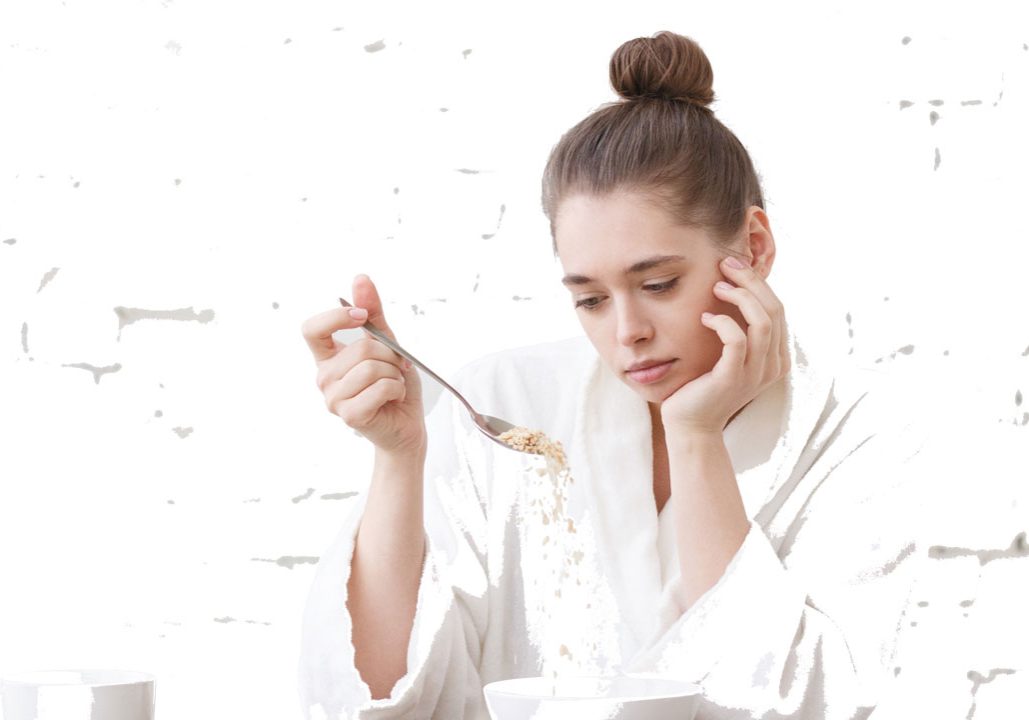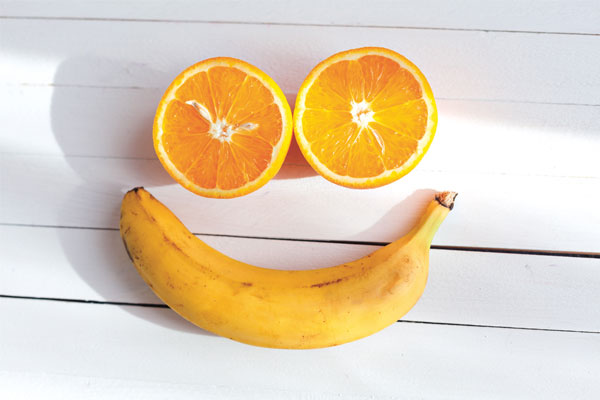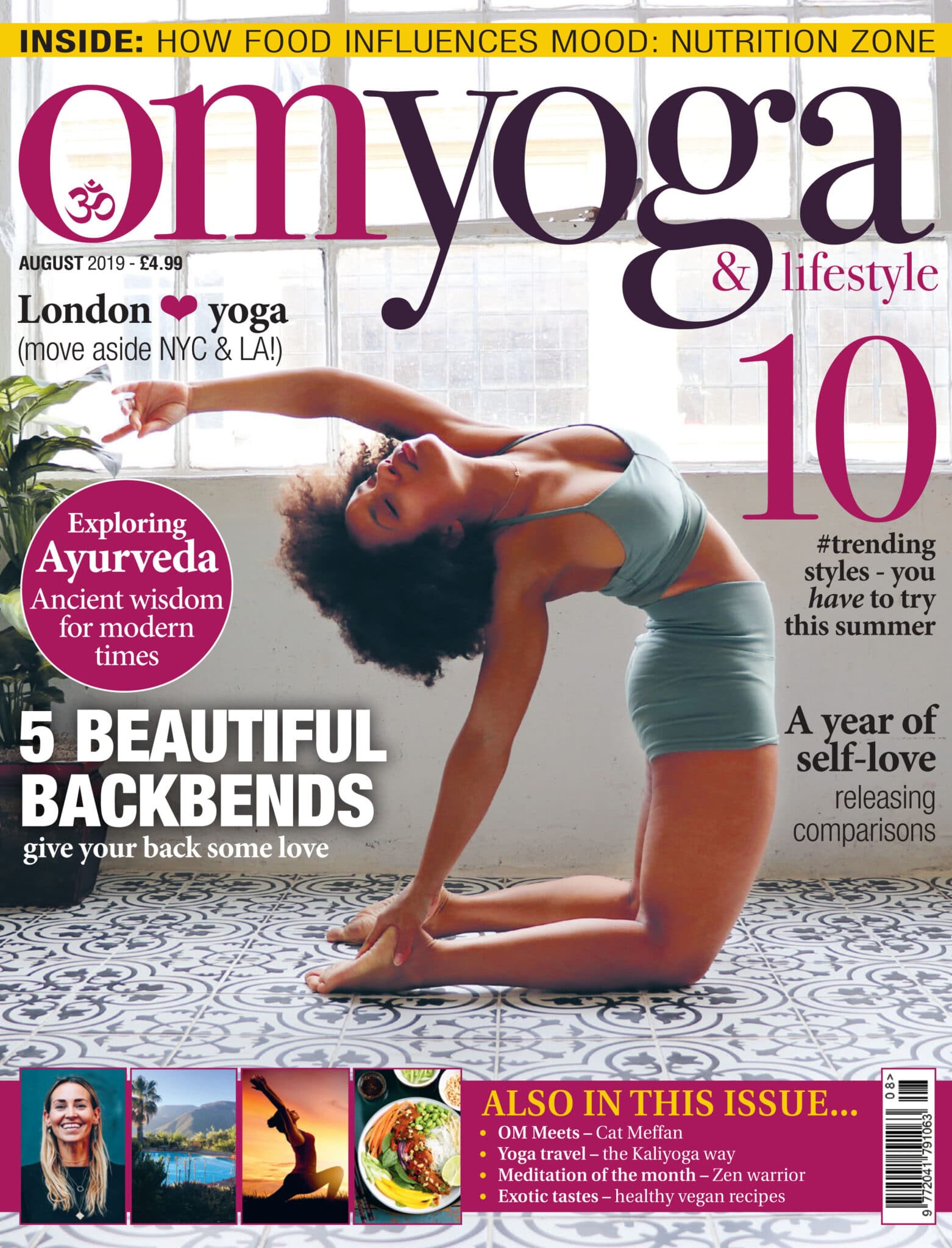
How food influences mood
Been feeling a little down in the dumps recently? Or suffering from mild anxiety? It could well be your diet. By Paul McQueen
There is mounting evidence showing a close relationship between what we eat and mood. The main focus has been on the mucous membrane and microbiome (micro-flora) found in our intestines (colon). The intestine wall has a thin mucous membrane which allows nutrients and water to pass through into the bloodstream. A microscopic ‘protective carpet ’of bacteria (micro-flora) on the surface acts like thousands of tiny ‘surveillance sentries’, helping stop infections and toxins entering into the body. This micro-flora is made up of both friendly and hostile bacteria whereby the norm is around 85% beneficial and 15% bad bacteria.
Should the bad bacteria get the upper hand then intestinal permeability of this barrier can be the result allowing toxins, antigens and bad bacteria to enter the bloodstream unhindered. Your immune response starts to work over-time to fight off this invasion.
When unwanted substances enter the bloodstream, it has far reaching consequences causing sub-clinical inflammation. Doctors speak of silent inflammation, which plays a role in severe overweight as well as depressive moods. The silent inflammation affects the metabolism and reduces concentrations of serotonin which is mainly made in the gut. Serotonin is a chemical found in the brain, blood and intestines that regulates emotional balance and affects mood. It also relaxes, promotes sleep and has an anti-depressive effect.
What can damage our micro-flora?
Poor diet and medications contribute a lot towards damaging our digestive system. Our gut bacteria feeds on the food we throw at it. It is therefore just as important to eat the right foods as it is to eliminate the harmful ones. Usually the intestine is lined with a healthy protective mucus layer but this can be damaged by emulsifiers found in margarine, ice cream or bread, or from using too much salt. Then, the intestine leaks (leaky gut syndrome) allowing some of the intestinal contents to pass freely into the bloodstream.
If you’re noticing any symptoms like depression, bloating, stomach ache, excessive flatulence, prolonged muscle or joint pains you might consider a simple blood test for inflammation.
The effects of stress
The brain talks to the gut and vice versa. About 90% of the information goes from the intestine to the brain and only 10% from the brain to the intestine. For example, the influence of stress slowing down bowel movement which can cause constipation. This shifts the intestinal contents composition which negatively influences the intestinal flora.
What can you do?
If you suspect that gut bacteria is affecting your mood, then supporting it properly by using ‘probiotics ’and ‘prebiotics ’can help naturally heal the gut flora. Probiotics and prebiotics not only bring the intestinal flora back into healthy balance, they also displace the negative agents in the gut. The most important of this is prebiotic which feeds the good bacteria.
How to support a healthy gut
PREBIOTIC FIBRE-RICH FOODS INCLUDE: barley and oats, apples, all kinds of nuts and seeds, legumes, beans, peas and berries, honey, brewer’s yeast, algae (spirulina, chlorela, nostoc).
PREBIOTIC INULIN-RICH FOODS INCLUDE: chicory root, leeks, onions, garlic, Jerusalem artichoke, asparagus, bananas.
PREBIOTIC SUPPLEMENTS: choose ones with inulin and oligofructose, for example, FOS (taken in small amounts for a short period only).

Probiotic fermented foods should always be kept refrigerated, like natural live bio-yogurt, cultured cottage cheese, feta, sauerkraut, miso, kombucha tea, kvass, olives in brine and sour pickles. Probiotics contain live bacteria that promote a healthy gut flora. There are many different types of bacteria in the gut whereby certain types ‘psychobiotics ’have been shown to improve symptoms of mild anxiety and depression. A study in 2017 on IBS patients also suffering with mild anxiety or depression concluded that taking a probiotic called ‘Bifidobacterium longum ’for six weeks significantly improved their wellbeing.
PROBIOTIC SUPPLEMENTS FOR THOSE WHO CAN’T STOMACH FERMENTED FOODS ON A REGULAR BASIS: choose one with several different strains of bacteria. Including at least: L .acidophilus, B .longum, B .bifidum, L .rhamnosus and L .fermentum. Best taken at least 15 minutes before eating.
OMEGA-3 ESSENTIAL FATTY ACIDS: the benefits of omega-3 oils from fish are well documented. They’re anti-inflammatory and promote good bacteria in the gut. You can supplement using a capsule, best taken with your lunch.
TRYPTOPHAN-RICH FOODS: eat more foods that contain the amino acid tryptophan as it is important for the production of serotonin. Foods high in tryptophan include spinach and seeds, as well as certain meat and dairy products (salmon, poultry, eggs, milk and cheese). Best eaten together with carbohydrates.
POLYPHENOL-RICH FOODS: cocoa, green tea, olive oil and coffee all contain polyphenols. These are plant chemicals that are digested by gut bacteria that help increase healthy gut bacteria. Avoid foods that are harmful to gut bacteria, such as artificial sweeteners, commercial bakery goods, sweets, trans fats, processed and refined sugars.
FOLLOW THE MEDITERRANEAN DIET: introduce a Mediterranean diet into your daily routine. It adds variety to your menu and there are hundreds of studies showing a multitude of health benefits for those who follow a Mediterranean diet while enjoying delicious food.
- Base every meal on fruits, vegetables, whole grains (whole wheat bread, brown rice, quinoa and bulgur), olive oil, beans, nuts, legumes (lentils, dried peas and beans), seeds, herbs and spices.
- Nuts like almonds, cashews, pistachios and walnuts are great for a quick snack.
- As an alternative to butter or margarine try olive oil or canola oil. Dip bread in flavoured olive oil or lightly spread it on whole-grain bread for a tasty alternative to butter.
- Make your own dressings using vinegars (all types), cold pressed oils, lemon juice, fresh herbs and spices, tabasco sauce, soy sauce, mustard, and mint sauce - and throw out the mayonnaise. Season your meals with herbs and spices rather than salt.
- Following the Mediterranean diet is more than just about food, it’s eating with others making an occasion of it so, have a glass of wine at dinner. If you’re teetotal, you don’t need to change. A glass of purple grape juice can be just as refreshing.
Nourishing your gut microbiome can make you happier and more relaxed. Improving mood and feeling more positive is often about balance. Diet, exercise, sleep and a positive outlook are all key elements to improving your mood. It may be as simple as getting out into the sunshine more often or exercising on a regular basis. There is no doubt that bacteria imbalance in the gut affects many people and can’t be fixed with one cup of herbal tea. A concerted plan over a six-week period watching your diet and leaving out what you know to be bad and drinking enough fluids each day can help. If you are taking prescribed medications like antidepressants, don’t just stop. Any change in diet should be discussed with your doctor .
Paul McQueen is a celebrated self-help expert and author of Hotlifestyle - Essential Basics: The Essential Guide For Getting Your Life On Track.(Graystone LA). Find out more at: hotlifestyle.info
Download or print the Hotlifestyle Healthy Shopping List at: hotlifestyle.info/HD


